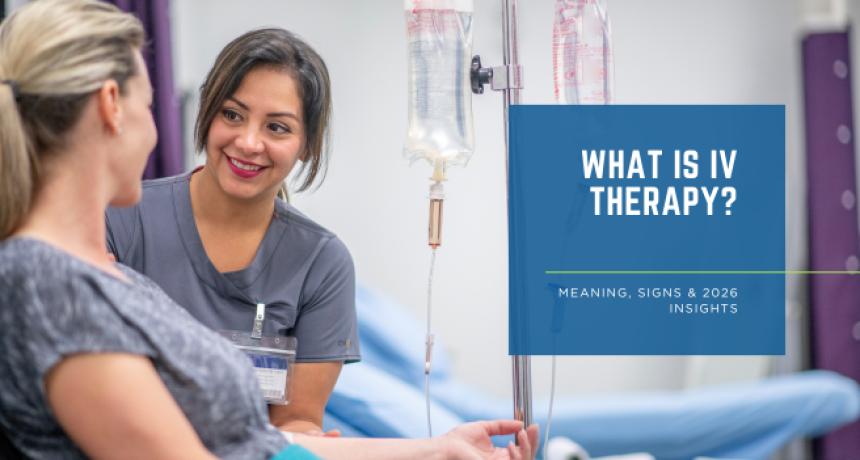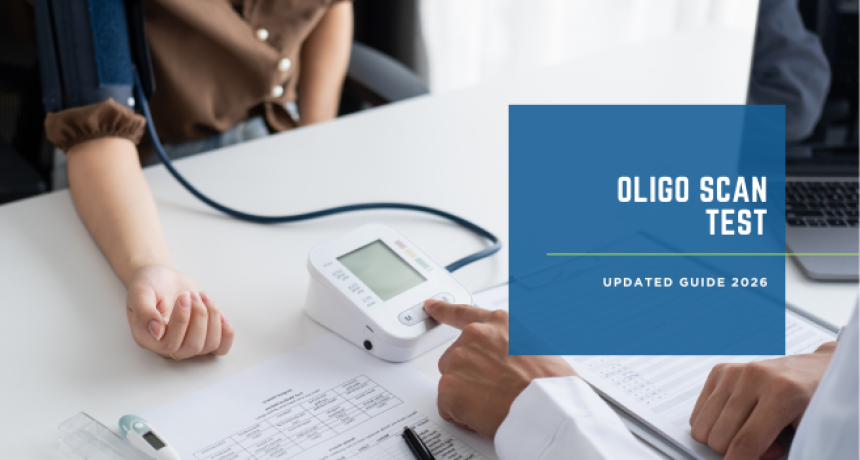Understanding Psoriatic Arthritis: Symptoms & Treatment
2025-07-16 Psoriatic arthritis (PsA) is an inflammatory autoimmune disease that can involve the skin and joints. PsA most often occurs in individuals who also have psoriasis (red, scaly patches of skin) and may sometimes precede visible psoriasis. Studies suggest that 25%–30% of psoriasis patients will go on to develop PsA. PsA is classified as a seronegative spondyloarthritis meaning that there are negative laboratory tests with respect to standard blood tests, like rheumatoid factor, in the presence of joint inflammation. Most patients with PsA experience swelling, tenderness or stiff joints (wrist, knees, hand, and feet); with a typical pattern of asymmetrical oligoarthritis (2-4 joints in its early phase) in about 70% of cases. A group of approximately 15% will have a symmetrical pattern of more than 4 joints that mimics Rheumatoid Arthritis distribution. Approximately 40% of patients will develop a distinctive pattern of swelling of an entire finger or toe (commonly referred to as a "sausage digit"). Nail and skin features Psoriatic arthritis is generally present somewhere on the body (scalp, nails or body), with nail involvement (thickening, pitting, oil spots) being very common distinguishing it from RA. There are also inflammatory effects at tendon or ligament attachment sites; particularly heel or foot; and in relation to start or rest pain in the back or sacroiliac pain. 50-70% of patients will experience some problems associated with PsA (typically heel pain, modifications to the way arches develop, plantar fasciitis, swelling in toes etc.); that results in reduced mobility. Chronic fatigue, sleep deprivation, anxiety, or depression are also common in patients with PsA that blunt segmenting functioning in everyday life. Red flags include personal or family history of psoriasis, joint pain and stiffness (especially morning stiffness), dactylitis, enthesitis, and changes to the nails. There are no specific tests to make a diagnosis; therefore clinical judgement is essential. Early diagnosis is beneficial in starting treatment so irreversible damage or deformity of joints does not occur later on. The goals of treatment are to reduce pain, reduce inflammation, reduce joint damage, and improve quality of life. As such, the best way to achieve best outcomes is with a comprehensive and individualized plan that combines multiple treatment modalities. Non-steroidal anti-inflamatories (NSAIDs), including ibuprofen, naproxen, or diclofenac, reduce pain and inflammation that are associated with PsA. COX‑2 selective NSAIDs will have less stomach-related side effects and will have some cardiovascular risk, and physicians must balance the risks versus benefits for each patient. Classic DMARDs used in PsA - methotrexate, sulfasalazine, or leflunomide, can improve value to patients in terms of the skin and psoriasis joint pain. Biologics (such as TNF inhibitors), or alternative targeted options of patching synthetic agents (JAK inhibitors, apremilast), provide enormous benefits with moderate to severe, persistent PsA, as they are targeting specific inflammatory pathways in the body. 51% of patients are using complementary and alternative medicine therapies to treat PsA in addition to medications. There is a range of CAMs like vitamin D and omega-3 fish oil, turmeric, yoga, meditation, or acupuncture, and patients should explore these options with a qualified health provider knowledgeable in CAM, and note that these cannot or will not substitute for medication. Self-care, specifically active self-care, considering activities involved with swimming, yoga, walking, is essential in restoring flexibility, improving mood, positively influencing your day, employing heat and/or cold, sleep hygiene, managing stress, adaptive equipment, and quitting smoking to create lasting overall health. Nutrition has a role to play in reducing inflammation and providing evidence-based interventions, but cannot treat PsA on their own. Data from a prospective cohort study indicated that those who ate a Mediterranean-style diet (with considerable quantities of whole fruit, whole grains, beans, legumes, olive oils, and fatty fish) had less PsA activity (lower DAPSA, lower ESR and PASI) after controlling for BMI and level of physical activity. Hypocaloric (reduced calorie intake) diets have also used a moderate calorie deficit as a deliberate attempt at a quantitative decrease in inflammatory markers in blood and joint disease symptoms without actual weight loss maintained. In a recent crossover trial comparing a (canine) ketogenic diet (KD) to Mediterranean diet, the KD group had substantially lower DAPSA, PASI and inflammatory cytokines (IL‑6, IL‑17 IL‑23, lower) than the Mediterranean diet group (also showing both diets show fat mass and weight loss). Omega‑3 fatty acids, dietary fiber (light not soluble; to create stool, if needed; where indicated), polyphenols, turmeric/curcumin, vitamin antioxidants as well as (more globally and complexly) anti-inflammatory foods, in some avenues regulate immune system balance and reduce oxidative stress; gut microbiota potential is also compelling, especially as it relates to diet induced microbial works as well as in reducing inflammation such as, psoriasis. Foods associated with more PsA inflammation include: Red or processed meats Sugar sweetened drinks and ultra-processed food High fat dairy Possibly nightshade vegetables for sensitive individuals (e.g. tomatoes, potatoes, peppers, eggplant) A 40-year-old woman with PsA (psoriatic arthritis ) who had been using methotrexate since 2003 decided to adopt a whole-food, plant-based psoriatic arthritis diet (no-added-oil, no-added-salt, no-added-sugar) diet in 2018. Over time she was able to taper off methotrexate and is currently in remission. This is an unusual event - few PsA patients ( less than 2%) recover to remission by dietary change alone, but it demonstrates the potential effectiveness of life-style-change. One user reported a miracle from an elimination diet: "I was able to elevate my pain - stay with me... super simple (leafy greens, quinoa, buckwheat + celery juice and cucumber juice) avoid all processed foods, avoid all refined sugar... I'm in remission, just an occasional ache..." Another user, who was a strict vegan plant-based eater found their remission with methotrexate: "I had remission... disappeared by taking methotrexate and eating on a diet with vegan;" And another person, who is documenting their gut-health journey said, "cutting out celiac triggers and processed food.... and the swelling went down almost daily... and without any morning stiffness." These reports do not represent an accepted truth, but do represent how dietary change contributes possibly in a meaningful way, especially via medical support. L & B Clinic, an arthritis clinic in Delhi is unique in its Integrative and patient-centered model of care for PsA. Some of the care we provide for our patients includes the following: Medical therapy by rheumatologists, including consultations regarding the use of NSAIDs, DMARDs, biologics, or targeted agents. Personalized dietary advice- Mediterranean-type or plant-forward dietary, dietary elimination trials, and dietary supplements (omega-3s, curcumin, vitamin D) under supervision. Weight, metabolic, and lifestyle coaching addressing inflammation and reducing risk and incidence of comorbidities. Supplementary and complementary medicine engagement, including supervised yoga, naturopathy, stress reduction techniques and meditation- always coordinated with medical therapy. Rehabilitation support, including joint protection training, physiotherapy and sleep/ergonomics recommendations. Monitoring, appraisal of joint disease activity ( DAPSA, Minimal Disease Activity), laboratory studies, imaging, and patient-reported outcomes. We are always reminding patients how evidence-based medical therapy integrated with dietary and lifestyle change significantly improves their outcomes, and ultimately their quality of life. Here are some clear cut and uncomplicated recommendations, based on research and arthritis autoimmune expert opinion for treating PsA. Continue to be active with a regular exercise regimen (yoga, swimming, walking, stretching, or light resistance work). Use heat or cold during flares to help with the pain. Plan to get at least seven to nine good hours of sleep each night. Sleep and rest both help control inflammation. Consider a diet that includes anti-inflammatory foods (vegetables, fruits, whole grains, fatty fish, turmeric, ginger), and limit sugar, processed foods, red meats, dairy and alcohol. And drink plenty of water. Think about pursuing an elimination diet and do so with the help of a dietitian. Go step by step with each of the foods. Manage stress with meditation, mind-body exercises or counselling. Keep the lines of communication open with your rheumatologist: if you notice sudden changes in day-to-day physical symptoms it may be time to rethink your treatment plan. Psoriatic is chronic autoimmune arthritis disease affecting the skin and joints, key features include pain in the joints, dactylitis, enthesitis, nail involvement and fatigue, and early diagnosis and treatment is important to limit irreversible damage to the joints. The treatment options in the medical model include first-line NSAIDS, DMARDS, biologics and newer targeted therapies. Different dietary styles, including Mediterranean, ketogenic, plant-based and hypocaloric dietary approaches show promising results in reducing inflammatory markers and symptoms. Dietary nutrients which show potential could include omega-3, fibre, antioxidants, turmeric; while potential dietary restrictions may include ultra-processed foods, red meat, sugars, and certain night shade plants. Real world evidence in the form of clinical case reports, stories shared by patients provide early support for dietary intervention combined with medical treatment in some cases even solely dietary intervention. L& B Clinic in Delhi takes a macroscopic holistic care model similar to the one described in a previous case report, whereby treatment provides a combination of medical treatment, nutritional, lifestyle coaching, physical rehabilitation and CAM therapies and succeeds with better outcomes for patients. If you are seeking knowledgeable, caring and holistic care for PsA, here are some of the best reasons to choose L & B Clinic: A multidisciplinary team of providers, rheumatologists, registered dietitians, physiotherapists, and complementary care providers. Evidence based medical treatment approach using lifestyle medicine and nutritionally-based medical treatment. Diet-ordered and supervised elimination phase with human body composition management. Creating self-care in a person centred manner, with education on self-joint protection & stress management. Regular monitoring: disease activity, regular lab monitoring, imaging, patient feedback-care based on experience, and storytelling. The vast majority of people reported not just reduced joint and skin symptoms, but better energy, better mood, decreased fatigue-and ultimately better overall feeling of control over their health. Psoriatic arthritis is a complex disease but effective management can be achieved with a collaborative approach involving medical treatment, nutrition, self-care and complementary therapy. No diet or treatment will guarantee remission but the whole person approach, alongside targeted medical treatment, in conjunction with anti-inflammatory, nutrient-dense dietary patterns, weight management, physical activity, and anxiety management provides the best way forward. At L&B Clinic in Delhi we come together with a holistic care plan that incorporates all these aspects and puts patients on the pathway to living more comfortably, more actively, and with more confidence of living with PsA.What Is Psoriatic Arthritis?
Recognizing Key Symptoms

Joint pain, swelling, and stiffness
Dactylitis (“sausage digit”)
Enthesitis & spinal symptoms
Foot involvement
Fatigue, mood & overall well‑being
Diagnosis: Why Early Detection Matters

Treatment: Combining Medical Care & Lifestyle

🔹 NSAIDS + relief
🔹 DMARDs (Disease-modifying antirheumatic drugs)
🔹 Biological + targeted therapies
🔹 Complementary therapies (CAM)
🔹 Lifestyle and self-care
Diet & Inflammation: What the Science Shows

🔹 Mediterranean diet & hypocaloric plans
🔹 Ketogenic benefits
🔹 Nutritional approaches that modulate inflammation
🔹 Unhelpful foods
Case Studies & Real-Life Experiences

Case A: Whole-Food Plant-Based Diet Leading to Drug-Free Remission
Patient voice: reports via Reddit
Holistic Management at L & B Clinic, Delhi

Self-Care Tips to Begin Today

Summary & Takeaway
Why Choose L & B Clinic in Delhi?
Conclusion
.png)















